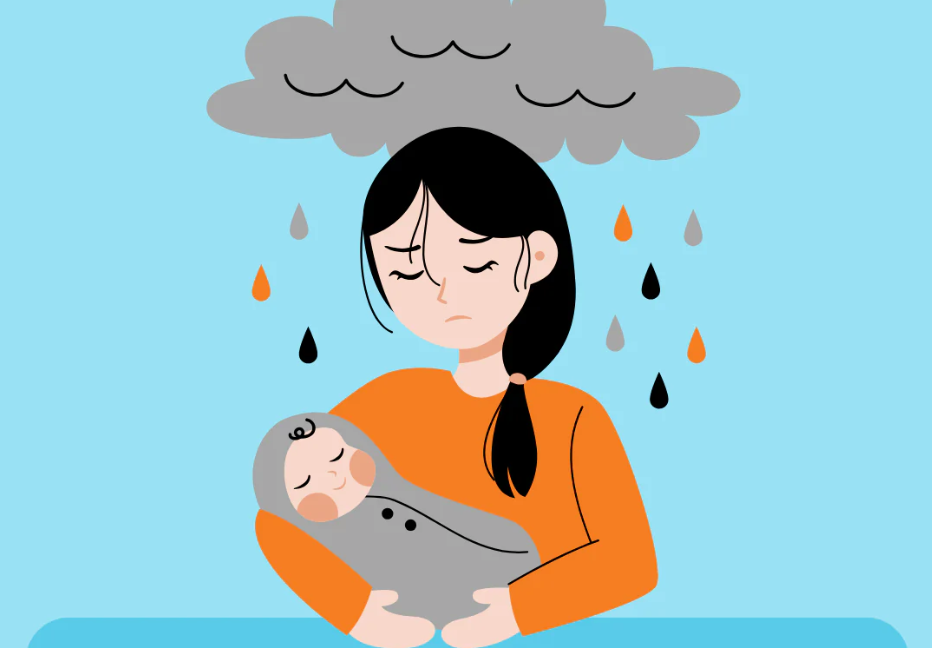
Welcoming a new life into the world is often celebrated as a joyous occasion, but for some new mothers, it can be overshadowed by feelings of sadness, anxiety, and overwhelming stress. Postpartum depression (PPD) affects approximately 1 in 8 women, making it a common yet often misunderstood condition. However, with the right support and strategies, it is possible to navigate through this challenging period and emerge stronger.
Understanding Postpartum Depression:
Postpartum depression is not simply the "baby blues" that many new mothers experience. It is a serious mental health condition that can manifest in various ways, including persistent sadness, anxiety, irritability, and difficulty bonding with the baby. It can occur anytime within the first year after childbirth and is believed to be influenced by a combination of hormonal changes, genetic predisposition, and environmental factors.
Strategies for Recovery:
1. Seek Professional Help:
The first step in overcoming postpartum depression is to seek professional help. This may involve consulting with a therapist, counselor, or psychiatrist who specializes in perinatal mental health. Therapy can provide a safe space to explore your feelings, learn coping strategies, and develop a treatment plan tailored to your needs.
2. Build a Support Network:
It's essential to surround yourself with supportive friends, family members, and healthcare professionals who can offer encouragement and assistance during this challenging time. Don't hesitate to ask for help when you need it, whether it's with childcare, household chores, or simply someone to talk to.
3. Prioritize Self-Care:
Self-care is crucial for mental health, especially for new mothers who are often overwhelmed with caring for their new-borns. Make time for activities that bring you joy and relaxation, whether it's reading a book, taking a bath, or going for a walk. Remember that self-care is not selfish – it's necessary for your well-being and the well-being of your baby.
4. Establish a Routine:
Creating a daily routine can provide structure and stability during a time of uncertainty. Try to establish regular sleep, meal, and exercise patterns, as well as designated times for bonding with your baby. Consistency can help alleviate feelings of chaos and overwhelm, making it easier to cope with postpartum depression.
5. Stay Active:
Regular physical activity has been shown to improve mood and reduce symptoms of depression. Aim to incorporate gentle exercise into your daily routine, such as walking, yoga, or swimming. Not only will exercise benefit your mental health, but it can also help you regain strength and energy after childbirth.
6. Educate Yourself:
Knowledge is power when it comes to managing postpartum depression. Take the time to educate yourself about the condition, its symptoms, and available treatment options. Knowing what to expect can help you feel more empowered and in control of your recovery journey.
7. Be Patient and Kind to Yourself:
Recovering from postpartum depression takes time, and it's important to be patient and compassionate with yourself along the way. Remember that healing is a gradual process, and there will be good days and bad days. Celebrate your progress, no matter how small, and acknowledge the strength and resilience it takes to overcome this challenging condition.
Conclusion:
Postpartum depression can be a daunting obstacle for new mothers, but it is not insurmountable. With the right support, strategies, and self-care practices, it is possible to emerge from this experience stronger and more resilient than ever before. By prioritizing your mental health and seeking help when needed, you can nurture hope and embark on a journey towards healing and recovery.
References:
https://www.healthline.com/health/depression/how-to-deal-with-postpartum-depression
https://psychcentral.com/depression/depression-busters-for-new-moms#exercise